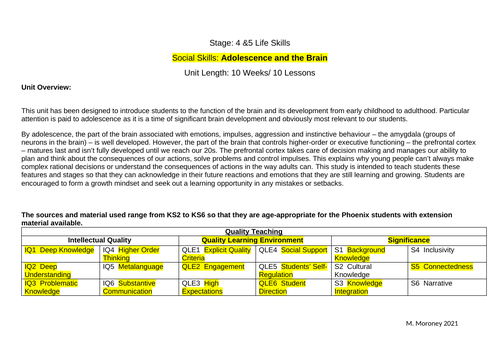

This unit has been designed to introduce students to the function of the brain and its development from early childhood to adulthood. Particular attention is paid to adolescence as it is a time of significant brain development and obviously most relevant to our students.
By adolescence, the part of the brain associated with emotions, impulses, aggression and instinctive behaviour – the amygdala (groups of neurons in the brain) – is well developed. However, the part of the brain that controls higher-order or executive functioning – the prefrontal cortex – matures last and isn’t fully developed until we reach our 20s. The prefrontal cortex takes care of decision making and manages our ability to plan and think about the consequences of our actions, solve problems and control impulses. This explains why young people can’t always make complex rational decisions or understand the consequences of actions in the way adults can. This study is intended to teach students these features and stages so that they can acknowledge in their future reactions and emotions that they are still learning and growing. Students are encouraged to form a growth mindset and seek out a learning opportunity in any mistakes or setbacks.
Something went wrong, please try again later.
This resource hasn't been reviewed yet
To ensure quality for our reviews, only customers who have purchased this resource can review it
Report this resourceto let us know if it violates our terms and conditions.
Our customer service team will review your report and will be in touch.